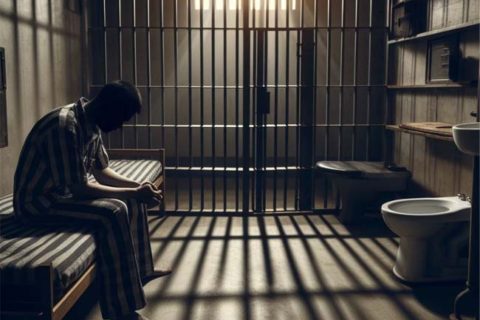Federal Bureau of Prisons, which is also more known as BOP in short, provides progressive and humane treatment and services to every federal inmate. Not only that, they also implement programs that facilitate the successful reintegration of the inmates into society.
What are the BOP programs for inmates? According to the official website of Bureau of Prisons or BOP, the programs that offer include:
Education Programs

Literacy classes are offered in every institution. Not only that, some other ones that are offered include English as a Second Language, parenting classes, wellness education, adult continuing education, library services, and instruction in leisure time activities.
In some places, it is a must for the inmates without a high school diploma or a General Educational Development (GED) certificate to participate in the literacy program. They should join it at least 24 hours or until they earn the GED. As for the inmates who do not speak English, they still have to take English for their Second Language.
According to the official website of the Federal Bureau of Prisons, the vocational and occupational training programs are based on the needs of the inmates. Besides, they are also based on the general labor market and institution labor force needs. The most important thing is on the-job-training. This kind of training is received by the inmates through institution job assignments and work in Federal Prison Industries. Bear in mind that the Bureau also facilitates post secondary educational and occupationally oriented areas. For those who are wondering about the traditional college courses, some of them are available. However, if the inmates want to take these courses, they will have to fund themselves.
Parenting classes are also usually given to the inmates so that they can develop appropriate skills during their time behind the bar. Recreation and wellness activities are good for healthy lifestyles and habits. In the library, there are a lot of fiction and non-fiction books, magazines, newspapers, and reference materials. There are also some legal materials that they can access so that they will be able to do research and prepare legal documents.
Religious Programs

The Constitutional religious rights of the inmates are guaranteed by the Chaplaincy Services Branch. They are in charge of facilitating religious worship and sacred scriptural studies across faith lines. Apart from that, they are the ones that provide pastoral care, spiritual guidance and counseling. Either the agency chaplains, contracted spiritual leaders, or trained community volunteers will lead the religious programming. Even though they are behind the bar, the prisoners can still do religious things and celebrate holy days. On top of that, they can even wear religious items and have access to religious materials.
Talking about the religious programs offered to the inmates, there is a thing known as the Life Connections Program or LCP and Threshold Programs. Both of them are the programs that are offered to the inmates so that they can improve their critical life. Life Connections Program or LCP is known as a multi-faint residential reentry program. This one is available at a total of 5 sites across the country at low, medium and high security levels. This program is described as an intensive and multi phase one that teaches values and character through a curriculum of personal, social and moral development. It uses a few different kinds of communities nationwide who serve as support group facilitators or mentors at program sites and release destinations to improve the community reintegration. For the inmates who are not eligible for the residential LCP, reentry preparation is also offered through the Threshold program. This program is similar to the LCP but a non-residential condensed version. This one is active in institutions throughout the agency. The goal is the same, which is to strengthen inmate community reentry.
Reentry Programs

Thinking about looking for jobs after getting released from prison can be scary. Those who have been behind the bar for a long time may feel scarier. Even though they get valuable skills and work experience through the programs such as Federal Prison Industries or FPI, vocational training opportunities, and or the other occupational education courses from the Bureau facilities, they still have to learn these things again. Besides, they may have to learn how to find a job.
According to the Bureau’s philosophy, the release preparation starts on the first day of incarceration. However, focus on release preparation intensifies at least 18 months before the release. There are a few things that are included in the Release Preparation Program, including classes in areas such as resume writing, job search, and job retention. Those who qualify can apply for jobs. It is stated that the program also includes presentations by the community based organizations that help the former inmates to find jobs and to get the chance of getting training after they are out of the prisons. In order to help the inmates adjust to life in the community and to find employment, BOP places appropriate inmates in Residential Reentry Centers before the release. Some of them will get release gratuity, clothing, or even money to go to the destination that they want to go to.
Work Programs

As long as they are capable and have good health, the sentenced inmates are required to work. The works for them vary, including in the areas such as food service or the warehouse. Aside from that, they can also work as an inmate orderly, painter, plumber, or groundskeeper. By doing their work, an inmate can gain 12¢ to 40¢ per hour.
UNICOR

UNICOR refers to the trade name for Federal Prison Industries or FPI in short. For those who are not familiar with this, it is a wholly owned, self-sustaining Government corporation. It sells the market priced services and quality goods that are made by the inmates. The good thing about this program is that it helps offenders in learning the skills that are important to change one from a convicted criminal to one that follows the law.

A bookworm and researcher especially related to law and citizenship education. I spend time every day in front of the internet and the campus library.




